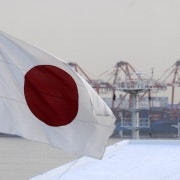Obama and Xi must halt the rise of a risky rivalry
The world will be watching the body language at this week’s US-China summit. If Barack Obama and Xi Jinping can establish a friendly rapport, they will challenge the fatalistic notion that China and the US are doomed to confrontation. That pessimistic view is underpinned by an economic shift that the Americans find uncomfortable: by 2016, Obama’s last year in office, China’s economy is likely to be larger than that of the US.
This prediction – made by both the International Monetary Fund and the OECD, the club of industrialised nations – is so sensitive that simply to state it invites howls of denial in the US. So, yes, it is true that these projections are flattered by adjusting for the cost-of-living in both countries. But if you use real exchange rates, the date when China might become number one is pushed back only a little – until 2018, according to The Economist (Those extra two years are such a comfort).
It is true that, even after China becomes the world’s largest economy, the average American will be far richer than the average Chinese. It is also true that the US military has a sophistication that China is not yet close to matching. The air is also cleaner in Washington than Beijing – and the burgers are tastier, too.
But all of that cannot disguise the fact that China’s rise means that America’s reign as sole superpower is coming to a close. The central geopolitical question of our time is how the two countries deal with the shift.
Both sides are well aware that if things go really badly wrong it could lead to war. Graham Allison, a Harvard professor, calls it “Thucydides’s trap”: the tendency, first observed by the Greek historian, for a rising power to clash with a ruling power. This historical observation started to feel more real and threatening earlier this year, as tensions rose between China and Japan over some disputed islands – potentially triggering America’s security guarantee to Japan.
China’s more assertive attitude to territorial disputes has bolstered the impression that the influence of the military in Beijing is on the rise. Chinese cyberattacks have also fuelled Washington’s fear that Beijing is ultimately intent on undermining American power.
Meanwhile Chinese fears about American intentions have grown, as the US has moved to bolster its network of Asian alliances. This policy has even been given a catchy title – “the pivot to Asia”.
If the pivot were simply an assertion that the US intends to remain a central power in the Asia-Pacific region, it would be hard to argue with. The problem is that it has been interpreted in Beijing as a fancy term for the containment of China. The most ballyhooed bits of the pivot have been military in nature: in particular, a decision to base more of the US navy in the Pacific and to rotate more American troops through Australia and the Philippines. Even the non-military aspects can look anti-Chinese – such as America’s push for a Pacific free-trade agreement that, so far, does not involve China.
If this growth of mutual suspicion between the US and China were simply a case of misunderstanding, it would be less worrying. However, underneath these rivalries, there is a genuine difference of vision. The US policy remains that China should become a 'responsible stakeholder' in the current global system. In other words, the rise of China will be just fine so long as it plays by the established rules. China’s response, however, is that these rules were established during a period of US hegemony. In Beijing’s view, the system needs to change to acknowledge the rise of China.
The Americans have little problem with giving China a greater voice in international institutions, such as the IMF. The real difficulty is over the apparent Chinese desire to carve out a “sphere of influence” in its immediate neighbourhood. To the Chinese, nothing could be more natural. After all, America assumes that it will always be the dominant power in the western hemisphere. Why can a rising China not aspire to the same role in east Asia? Yet, with east Asia set to become the core of the global economy, the US is unwilling to concede this dominant regional role to China.
It is this struggle that lies behind the US desire to establish much more effective communication between the two countries’ militaries, to avoid potential clashes in the tense east Asian waters. To American ears, this sounds like an eminently sensible idea. But China has resisted bolstering these crisis management procedures, because this risks looking like a tacit concession of the US Navy’s right to patrol close to the Chinese coast.
As far as Beijing is concerned, the solution is for the US simply to back off. However, the Americans believe that, if they were to do that, they would send a disastrous signal of weakness to their network of Asian allies, who are already wondering whether the US has the staying power to remain the dominant military power in the Pacific. This week, the Americans let it be known that the Chinese navy has started to make occasional appearances in US territorial waters – probably off the coast of Guam.
Pessimists would argue that more of this kind of rivalry is inevitable. But if Obama and Xi can surprise the sceptics this week, by coming up with a new understanding on cyberspace, or on naval patrols, they can challenge the self-fulfilling prophecies of ever greater rivalry between their two countries.
Copyright the Financial Times 2013.













